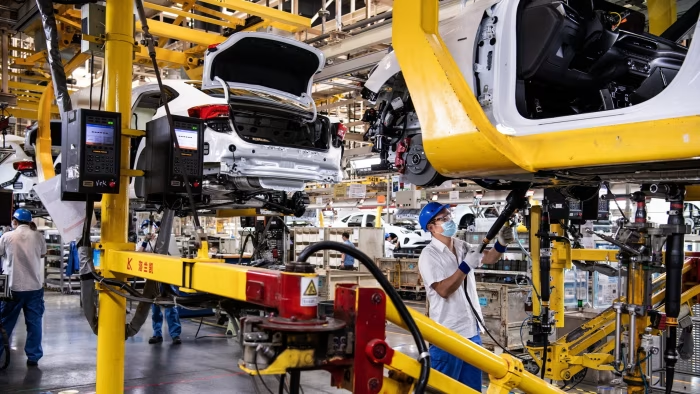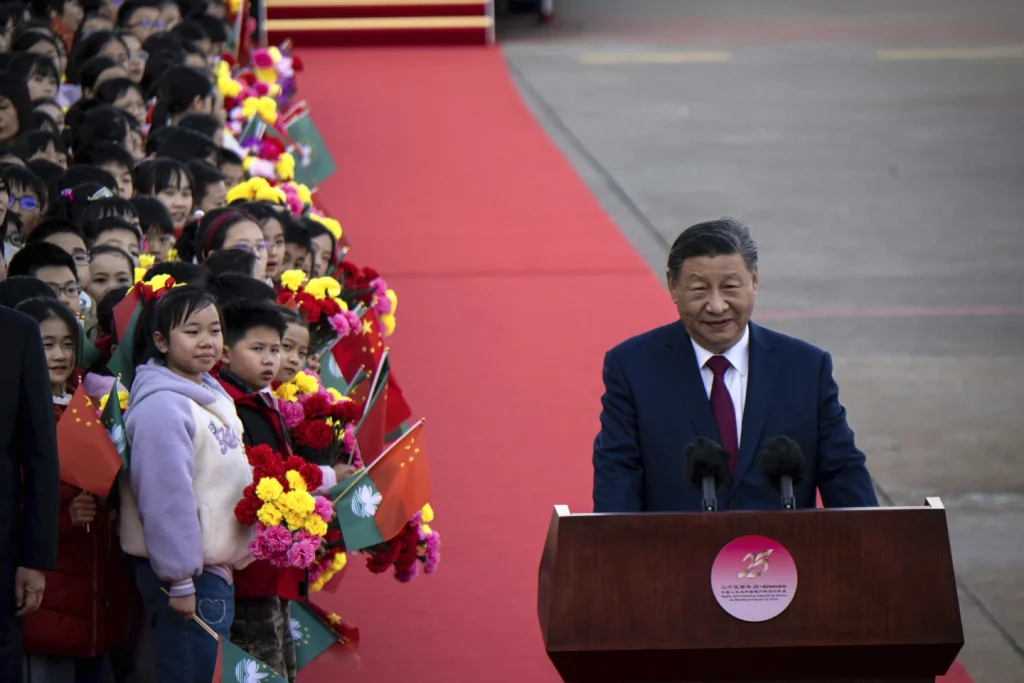General Motors takes $5bn charge against China businesses

In a move that has caught the attention of investors and industry observers, General Motors (GM), one of the world’s largest automakers, has announced a substantial financial charge of $5 billion against its operations in China. The decision marks a significant development in the company’s strategy as it seeks to navigate challenges in one of its most important international markets. While GM has had a strong presence in China for over two decades, the economic and geopolitical landscape has shifted in ways that have created increased uncertainties for its business there.
The Impact of GM’s $5bn Charge
The $5 billion charge that GM has taken against its China businesses primarily relates to its restructuring efforts and a reassessment of the value of its investments in the region. GM, like many multinational corporations, is increasingly under pressure to adjust its operations in response to changing market conditions, regulatory environments, and shifting consumer preferences in China. The charge is expected to affect GM’s financial results, with analysts predicting a decline in the company’s short-term profits as it reconfigures its strategy in China.
Factors Behind the Charge
Several key factors have led GM to take this substantial charge, including:
- Slowing Economic Growth in China: China’s economy, once the engine of global growth, has faced significant challenges in recent years. The country’s economic slowdown has impacted consumer spending and industrial output, which has trickled down to the automotive sector. With consumers facing financial uncertainty, the demand for new cars has weakened, particularly for the kind of vehicles GM traditionally produces.
- Increased Competition: China’s automotive market has become increasingly competitive, with local Chinese automakers such as BYD and NIO capturing a growing share of the market. Additionally, foreign companies, including Tesla, have intensified their efforts in the electric vehicle (EV) space, which has become a major focus for consumers in China. As a result, GM’s market share in the country has been under pressure, and the company has had to reassess its strategies in response to the changing competitive landscape.
- Shift Toward Electric Vehicles: The automotive market in China is increasingly focused on electric vehicles, as the country accelerates its efforts to reduce emissions and combat air pollution. GM, which has been heavily invested in traditional gasoline-powered vehicles, is playing catch-up in the EV market. While the company has made strides in its electric vehicle offerings, it faces intense competition from both domestic and international manufacturers that are ahead of the curve in EV production. The charge reflects GM’s need to invest more heavily in the EV sector to maintain relevance in China’s fast-evolving automotive industry.
- Geopolitical Tensions and Trade Barriers: GM’s operations in China have been impacted by the broader geopolitical tensions between the United States and China, particularly in areas of trade and technology. While China remains a key manufacturing hub for global automakers, the strained U.S.-China relationship has introduced risks for American companies operating there. The trade war, tariffs, and changing regulations could impact GM’s bottom line, requiring the company to take a cautious approach to its operations in the region.
- Regulatory and Environmental Pressures: China has implemented stricter environmental regulations in recent years, pushing automakers to meet higher emissions standards. For companies like GM, which have historically relied on combustion engine vehicles, this has meant additional investments in cleaner technologies. While GM has been ramping up its electric vehicle efforts, the pace of these transitions has been slow, requiring a reassessment of the company’s business model and investment strategies in China.
GM’s Strategy Moving Forward
While the $5 billion charge marks a challenging moment for General Motors, the company is focused on positioning itself for the future in China. GM’s strategy moving forward will likely involve a combination of restructuring, expanding its EV offerings, and making further investments in localized production to adapt to the changing landscape.
Electric Vehicle Investment: GM is placing significant emphasis on its electric vehicle (EV) production and plans to roll out several new EV models in the coming years. As part of this effort, GM is also working to increase the production of its EVs in China, which remains the world’s largest EV market. The company has also focused on expanding its partnerships with Chinese tech companies to develop and enhance EV technologies, including autonomous driving systems and smart vehicle features.
Local Manufacturing and Partnerships: GM’s strategy includes deepening its ties with Chinese automakers and expanding its presence in joint ventures. The company has long operated joint ventures with local Chinese firms, which have allowed it to share costs and navigate the regulatory environment in the country. Strengthening these partnerships and exploring new ones will likely be central to GM’s strategy moving forward, particularly as it looks to adapt its vehicles to the preferences of Chinese consumers.
Diversification: Given the economic challenges in China, GM is also looking at other markets to bolster its revenues. The company is making significant inroads into the electric vehicle market in North America and Europe, which will become increasingly important as demand for EVs rises globally. GM’s investment in electric trucks, autonomous vehicles, and other next-generation technologies will likely help it diversify its revenue streams beyond China.
Long-Term Outlook
Despite the short-term challenges posed by the $5 billion charge, GM’s long-term outlook remains positive, especially if it can successfully transition to electric vehicles and adapt to China’s rapidly changing automotive market. The company’s focus on sustainability and innovation will likely help it remain competitive in both the Chinese market and globally.
In the next few years, the automotive industry in China is expected to continue evolving, with increasing emphasis on electric and smart vehicles. GM’s ability to adjust its product offerings to meet these demands, coupled with its ongoing investment in new technologies, will play a critical role in determining its success in China and other emerging markets.
Additionally, the company’s global strategy will increasingly involve leveraging its global manufacturing capabilities, expanding its EV offerings, and improving cost-efficiency, all while responding to the shifting political and economic conditions in China.
General Motors’ decision to take a $5 billion charge against its businesses in China reflects the complex and changing dynamics the company faces in one of its most important international markets. Economic slowdowns, increasing competition, geopolitical tensions, and regulatory changes have all contributed to GM’s need to reassess its operations in the region.
While the charge represents a significant financial adjustment, it is also part of a broader strategy by GM to invest heavily in electric vehicles and adapt to the changing preferences of consumers, both in China and globally. The company’s ability to navigate these challenges will likely shape its future success, not only in China but in markets around the world.






